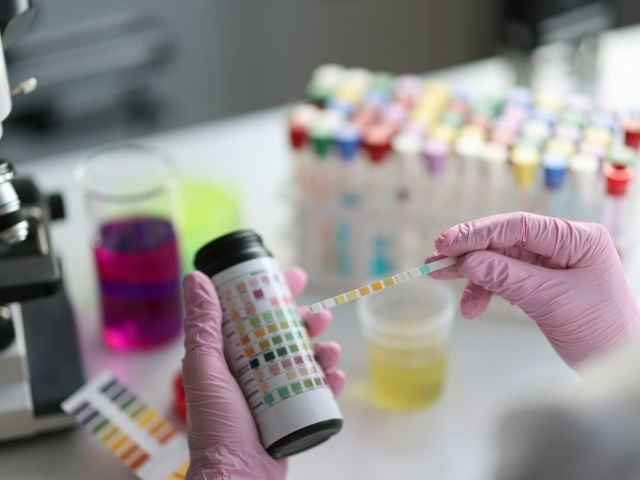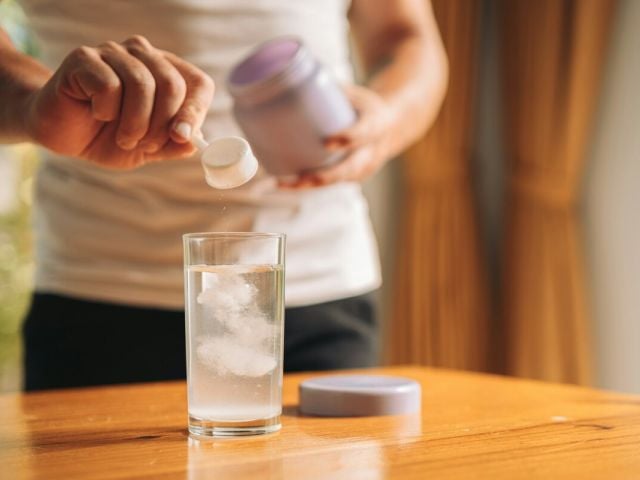
10 Vitamins and Minerals with Anti-Aging Benefits
Your body needs specific nutrients to stay youthful and fight age-related decline. Research shows certain nutrients play key roles in supporting cellular health and slowing aging.
These ten vitamins and minerals have solid science backing their anti-aging properties. From protecting your DNA to supporting brain function, each offers unique benefits for healthy aging.
Best Anti-Aging Vitamins and Minerals
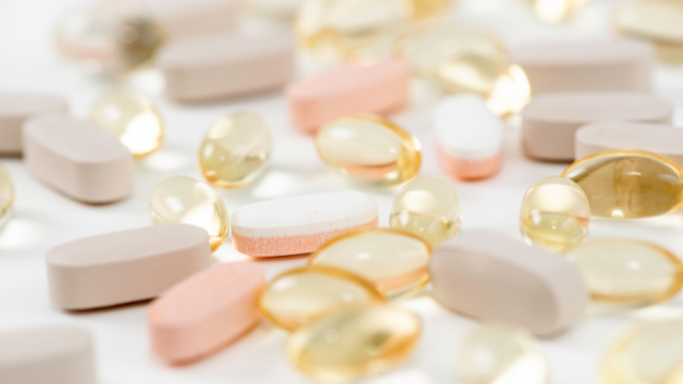
| Nutrient | Anti-Aging Benefit | Key Research |
|---|---|---|
| Vitamin D | Telomere protection | Prevents 3 years of biological aging |
| Vitamin C | Collagen production | Reduces photoaging in 12 weeks |
| Zinc | Immune function | 5mg increase linked to longer telomeres |
| Magnesium | Cellular energy | Involved in 600+ cellular reactions |
| Vitamin E | Membrane protection | Works synergistically with vitamin C |
| Selenium | Antioxidant enzymes | 20mcg increase = longer telomeres |
| B Vitamins | Brain health | 30% reduction in brain shrinkage |
| Vitamin K2 | Bone/brain protection | 36% lower death risk |
| Potassium | Cellular function | 33% lower death risk with adequate intake |
| Molybdenum | Detoxification | Correlates with longevity regions |
Vitamin C
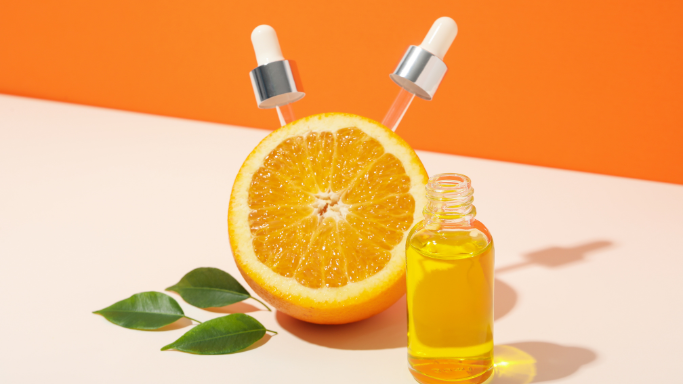
Vitamin C builds collagen and protects skin from aging damage. Your body uses this vitamin to create the protein that keeps your skin firm and elastic.
Studies show impressive results for vitamin C supplementation. Research using topical vitamin C found a significant reduction in photoaging scores and improvement in wrinkles after 12 weeks of use.1
The aging process naturally breaks down collagen through enzymes called matrix metalloproteinases. Vitamin C helps block these enzymes while boosting new collagen production.
Key Benefits:
- Reduces signs of aging like wrinkles and age spots
- Protects against UV damage
- Supports immune function
- Maintains longer telomeres
Large population studies found that people with higher vitamin C intake had longer telomeres. These protective DNA caps shorten as you age, making telomere length a key marker of biological aging.2
Zinc
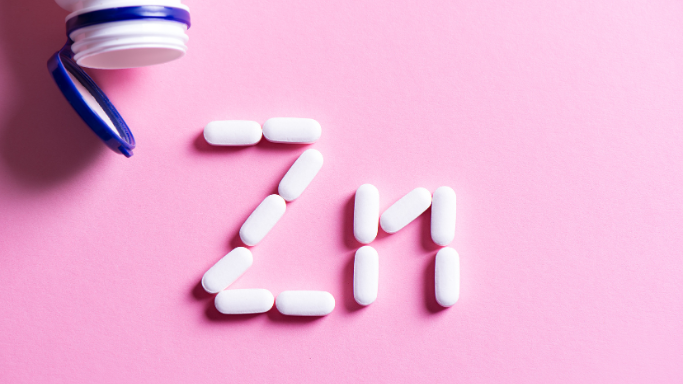
Zinc supports immune function and activates longevity pathways throughout your body. This mineral plays a role in over 300 enzyme reactions that keep your cells working properly.
Research from the NHANES study of nearly 4,000 adults found remarkable results. Every 5mg increase in dietary zinc was linked to longer telomeres, with the strongest effects in women and older adults.3
Your immune system particularly benefits from zinc. The mineral supports natural killer cells and helps neutrophils fight off infections.
Key Benefits:
- Supports DNA repair and protein synthesis
- Maintains telomere length
- Boosts immune function in older adults
- Protects against cellular senescence
Zinc deficiency becomes more common with age due to poor absorption and dietary changes. Most people meet their needs through food, but some benefit from targeted supplementation.
Looking for Quality Immune Support?
Jinfiniti’s Natural Vitamin C + Zinc combines bioavailable zinc chelate with whole food vitamin C from amla extract. This pairing supports your immune system while providing the antioxidant protection both nutrients offer together. You get two aging-protective nutrients in their most absorbable forms.
Magnesium
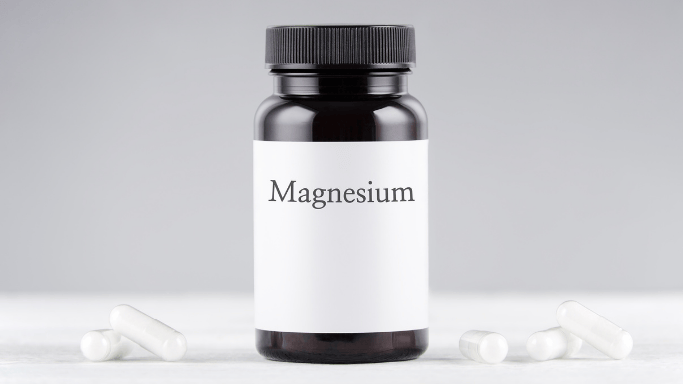
Magnesium powers cellular energy production and protects against age-related decline. This mineral serves as a helper in over 600 reactions that power your cells.
Recent analysis shows magnesium connects with all major hallmarks of aging. These include DNA damage, telomere shortening, and mitochondrial dysfunction.4
Your cells rely on magnesium for energy production. The mineral helps your cellular powerhouses create ATP, the fuel that powers everything from muscle contraction to brain function.
Key Benefits:
- Supports cellular energy production
- Helps maintain DNA stability
- Reduces oxidative stress and inflammation
- Supports healthy blood pressure and heart function
Many older adults don’t get enough magnesium from food alone. Medications like heartburn drugs reduce absorption, making deficiency more likely. Supporting your cellular health becomes increasingly important as magnesium levels decline with age.
Vitamin D
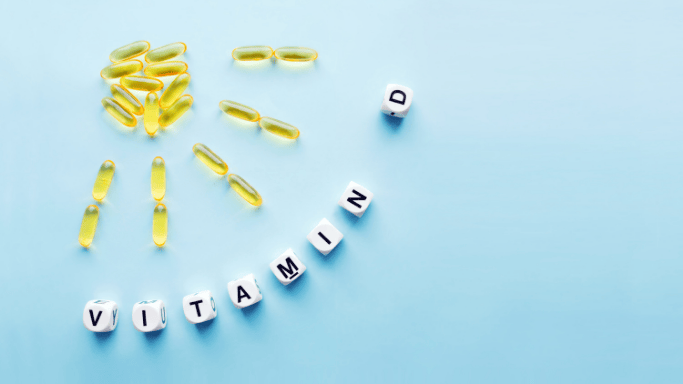
Vitamin D protects your cells from biological aging better than any other vitamin. The landmark VITAL study represents the first large-scale trial to show vitamin D’s protective effects on biological aging.
The VITAL Telomere sub-study followed over 1,000 participants for 4 years. Those taking 2,000 IU of vitamin D3 daily showed significantly slower telomere shortening compared to placebo.5
The results were striking. Vitamin D supplementation prevented the equivalent of nearly 3 years of biological aging.
Key Benefits:
- Protects telomeres from shortening
- Supports immune system function
- Helps reduce chronic inflammation
- Supports stem cell maintenance
Your skin makes vitamin D from sunlight, but production decreases with age. Most people over 50 need supplements to maintain optimal levels for healthy aging.
Vitamin E
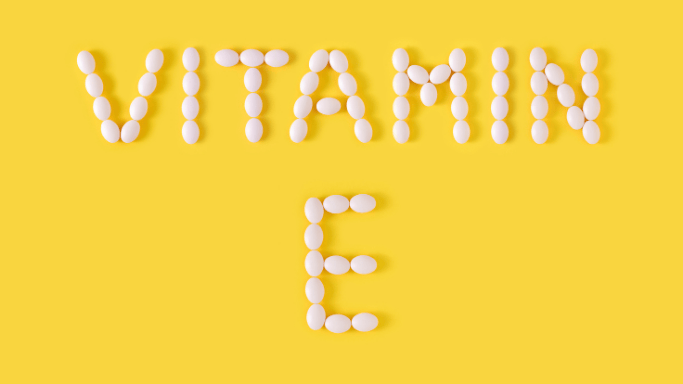
Vitamin E protects your cell membranes from oxidative damage that accumulates over time. As a fat-soluble antioxidant, it works particularly well in protecting cellular structures made of lipids.
This vitamin works best when combined with other antioxidants. Research shows that vitamin C helps regenerate vitamin E, creating a synergistic protection system against free radicals.6
Studies in older adults found that combining 300mg vitamin E with 400mg vitamin C daily for one year reduced markers of oxidative stress. This combination approach provides more effective protection than taking either vitamin alone.
Key Benefits:
- Protects cell membranes from lipid peroxidation
- Works synergistically with vitamin C
- Supports immune function in elderly people
- Helps slow cellular senescence
Individual responses to vitamin E vary based on your current oxidative stress levels. People with higher baseline oxidative damage tend to see more benefits from supplementation.
Understanding your oxidative stress markers helps guide your supplementation strategy.
Selenium
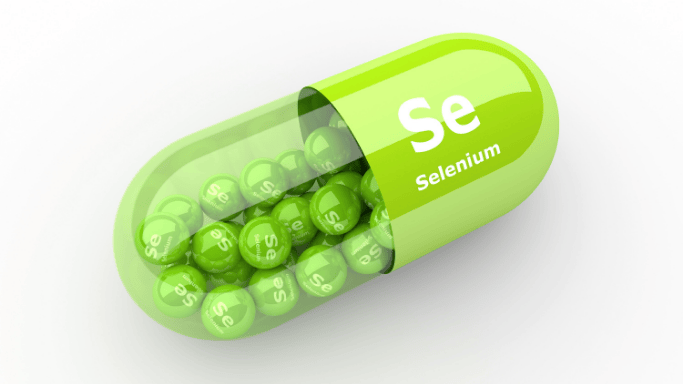
Selenium forms powerful antioxidant enzymes that protect your cells from damage. Your body incorporates this mineral into selenoproteins that defend against oxidative stress and support immune function.
Studies show that people with higher selenium intake have longer telomeres. Every 20 microgram increase in dietary selenium was associated with longer telomeres in adults over 45.7
Your skin particularly benefits from selenium’s protective effects. The mineral helps protect keratinocyte stem cells against senescence, helping maintain your skin’s ability to repair and regenerate.
Key Benefits:
- Essential component of antioxidant enzymes
- Protects against UV-induced skin damage
- Supports immune system function
- Preserves stem cell function
Clinical trials combining selenium with coenzyme Q10 showed improvements in anti-aging biomarkers after long-term supplementation. Brazil nuts provide one of the richest food sources of selenium.8
B Vitamins
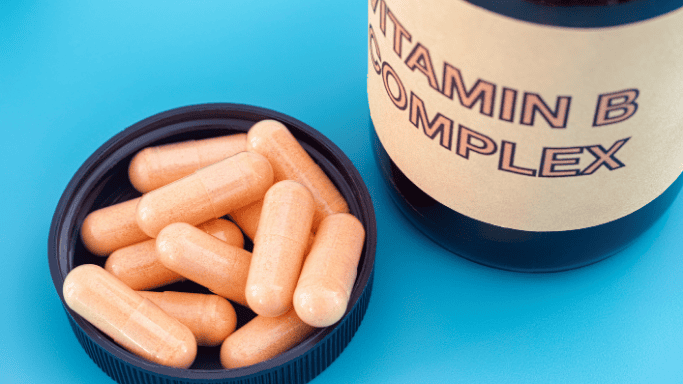
B vitamins maintain cognitive function and cardiovascular health as you age. B6, B12, and folate support DNA methylation processes that help regulate gene expression.
The VITACOG trial showed that B vitamin supplementation reduced brain shrinkage by 30% in older adults at risk for dementia. The effects were even stronger in people with elevated homocysteine levels.9
Your ability to absorb vitamin B12 decreases with age. About 40% of people aged 75-80 have diminished capacity to absorb food-bound B12, contributing to cognitive decline and fatigue.
Key Benefits:
- Support DNA repair and methylation processes
- Help reduce homocysteine levels
- Essential for neurotransmitter production
- Slow brain atrophy and cognitive decline
B vitamin deficiencies become increasingly common in older adults due to medication interactions and digestive changes. Brain health supplements that include B vitamins help support cognitive function during aging.
Vitamin K2
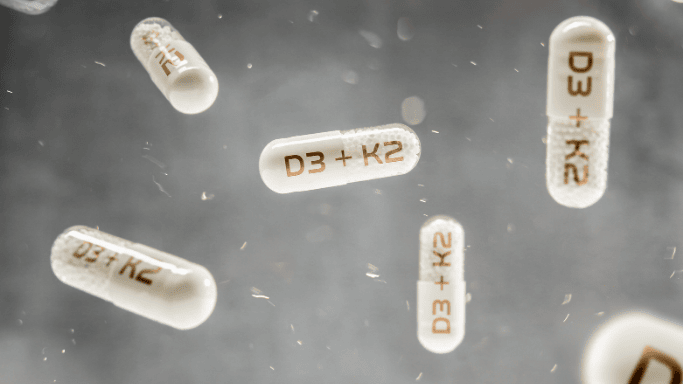
Vitamin K2 protects bone health and brain function through calcium regulation and longevity pathway activation. This form of vitamin K activates proteins involved in calcium regulation and supports longevity pathways.
Animal studies show impressive results for vitamin K2 supplementation. Rats given vitamin K2 showed improved memory, reduced anxiety, and better functional performance compared to control groups.10
The vitamin works by activating Matrix Gla Protein, which prevents calcium from depositing in arteries and soft tissues. This helps maintain cardiovascular health and reduces age-related disease risk.
Key Benefits:
- Supports bone formation and strength
- Prevents arterial calcification
- Improves cognitive function and mood
- Supports mitochondrial energy metabolism
Population studies suggest that higher vitamin K intake is associated with 36% lower risk of death from any cause in high-risk cardiovascular populations.
Potassium

Potassium maintains cellular function and influences lifespan through multiple pathways. This mineral helps maintain the electrical balance that keeps your cells functioning properly.
The Rancho Bernardo Study followed over 1,300 older adults for 20 years. Those with the lowest potassium intake had a 33% increased risk of death compared to those with moderate intake levels.11
Research shows that potassium affects cellular cleanup mechanisms. Studies in yeast found that potassium restriction extends lifespan by 20% through enhanced cellular acidification and improved autophagy.
Key Benefits:
- Maintains cellular membrane potential
- Supports cardiovascular function
- Enhances cellular cleanup processes
- Protects against stroke risk
Most people don’t get enough potassium from their diet. Fruits, vegetables, and legumes provide the best food sources of this aging-protective mineral.
Molybdenum
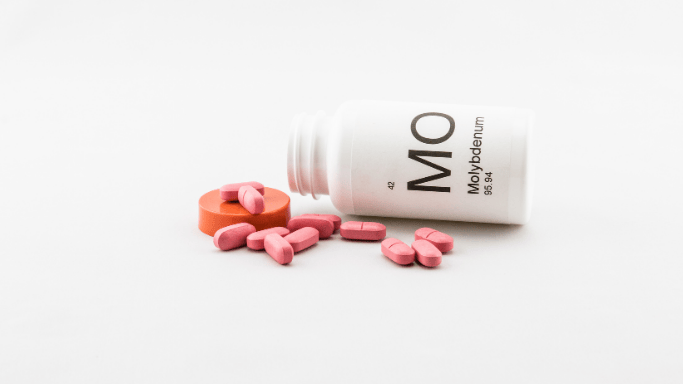
Molybdenum supports cellular detoxification and shows correlations with longevity in population studies. While research is limited, population studies suggest interesting connections between molybdenum and longevity.
Studies in Chinese longevity regions found correlations between soil and water molybdenum levels and the percentage of long-lived residents. These areas show elevated molybdenum in their natural environment.12
Your body uses molybdenum as a cofactor for enzymes involved in purine metabolism and cellular detoxification. The mineral supports antioxidant enzyme function and helps process sulfur-containing compounds.
Key Benefits:
- Supports detoxification enzyme function
- Essential for purine metabolism
- Contributes to bone health
- Supports antioxidant systems
More research is needed to understand molybdenum’s role in aging, but population data suggests this trace element deserves attention in longevity research.
Start with the Right Approach to Healthy Aging
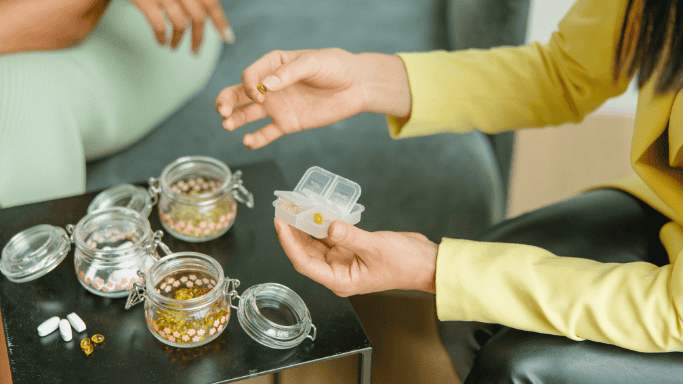
These vitamins and minerals work best together rather than alone. Research consistently shows that combinations of antioxidants provide superior protection compared to single nutrients.
The key is getting adequate amounts without overdoing it. Moderate supplementation generally works better than megadoses, which sometimes backfire.
Start with the right approach:
- Test your current nutrient levels first
- Focus on food sources when possible
- Target specific deficiencies with supplements
- Track your response and adjust as needed
This follows the proven “test, act, optimize” approach that delivers real results.
Understanding your individual nutrient needs requires personalized testing rather than guesswork. Jinfiniti’s longevity testing panels help identify which nutrients you need most for optimal aging.
Ready to take a comprehensive approach?
Explore natural senolytic supplements that work alongside these nutrients. Products like Jinfiniti’s SenoAid combine multiple aging-protective compounds for better results.
Remember that nutrition is just one piece of the healthy aging puzzle.
Regular exercise, stress management, and quality sleep all work together with proper nutrition to help you age successfully.
Learning about practices that support mitochondrial health takes your anti-aging strategy even further.
Referenced Sources:
- https://jcadonline.com/topical-vitamin-c-and-the-skin-mechanisms-of-action-and-clinical-applications/ ↩︎
- https://www.frontiersin.org/journals/aging/articles/10.3389/fragi.2024.1339317/full ↩︎
- https://www.frontiersin.org/journals/nutrition/articles/10.3389/fnut.2022.993425/full ↩︎
- https://pmc.ncbi.nlm.nih.gov/articles/PMC10892939/ ↩︎
- https://news.harvard.edu/gazette/story/2025/05/vitamin-d-supplements-may-slow-biological-aging/ ↩︎
- https://pmc.ncbi.nlm.nih.gov/articles/PMC2685276/ ↩︎
- https://linkinghub.elsevier.com/retrieve/pii/S0002916522049656 ↩︎
- https://www.medicalnewstoday.com/articles/does-selenium-really-slow-aging ↩︎
- https://pmc.ncbi.nlm.nih.gov/articles/PMC4045270/ ↩︎
- https://pmc.ncbi.nlm.nih.gov/articles/PMC8944720/ ↩︎
- https://pmc.ncbi.nlm.nih.gov/articles/PMC8075047/ ↩︎
- https://lpi.oregonstate.edu/mic/minerals/molybdenum ↩︎

Get weekly health insights and exclusive offers by joining our newsletter.


